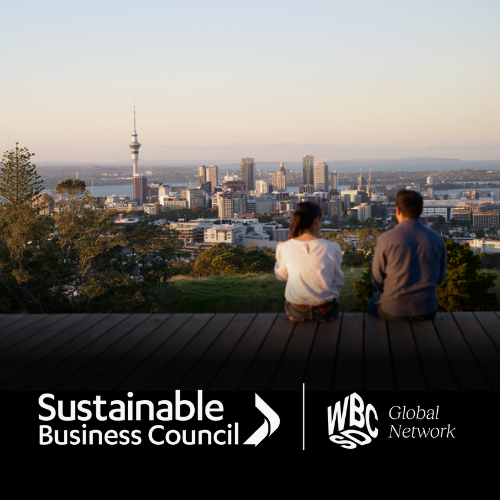Incorporating Sustainable Development Goals into business
I hear from a lot of smaller businesses that they struggle with understanding how to engage with the SDGs, or how they are useful to business. The good news is that help is on its way – as I discovered in New York.
In 2015, the New Zealand Government signed up to the Sustainable Development Goals (SDGs), also known as the Global Goals. The 17 SDGs lay out a clear vision for a sustainable future and will shape a new era for business. They were developed by the United Nations, with input from the international business community, and cover all the aspects you might imagine, from gender equality and zero hunger, to responsible consumption and production and climate action.
The New Zealand Government has committed to the SDGs, but we know that achieving them won’t be possible unless all parts of society, from business to non-profit organisations and communities, are actively working towards them.
We encourage all of our members to include the SDGs in their sustainability planning and strategy. This helps them understand the role they can play in reducing poverty, protecting the planet and ensuring prosperity for the long-term.
Smaller businesses contribute 28% of New Zealand’s GDP, and 97% of businesses employ fewer than 20 people. I hear from a lot of smaller businesses that they struggle with understanding how to engage with the SDGs, or how they are useful to business. The good news is that help is on its way – as I discovered in New York.
In July, New Zealand delivered its first Voluntary National Review on progress towards the SDGs to the United Nations, highlighting everything that has been happening around the country, from government agencies, to community groups, and importantly for us, business. I had the great honour of representing New Zealand business in the official delegation – offsetting my carbon emissions of course – and spoke to the High-Level Political Forum on the Sustainable Development Goals about what New Zealand businesses are doing to deliver the SDGs.
Our members have put in great efforts on the three priority SDGs we identified back in 2017 – Goal 13 Climate Change, Goal 1 Zero Poverty and Goal 8 Decent Work and Economic Growth, through the Climate Leaders Coalition and initiatives on the Future of Work, among others. And when we last reviewed member sustainability reports, more than 50% were mapping their performance against the SDGs.
The report profiled initiatives like the Vector Urban Forest for Affordable and Clean Energy, Auckland Council’s Living Lightly programme for Sustainable Cities and Communities and The Warehouse Group’s Red Shirts in the Community for Reduce Inequalities. We also know that Christchurch Airport have been working to embed a culture of sustainability by using the SDGs, and purchasing Fairtrade products can also help achieve a number of the Sustainable Development Goals.
One of the benefits of being in New York was the number of side events I got to attend, on different aspects of the SDGs. A highlight was the launch of the Green Economy platform for SMEs, which will provide tools and resources to help businesses get started. It provides information on how to green your entire value chain, from the initial inputs, through the operations to the end products. It also shows how adopting these principles can help your bottom line.
https://greenindustryplatform.org/
Increasingly we see businesses looking for ways they can make a difference, when they haven’t considered sustainability before. The SDGs provide a way to delve into all aspects of sustainability – both social and environmental. Businesses should not try to tackle all 17 goals at once, but they are a good tool to start having conversations with staff, customers and suppliers about which ones to focus on.
More about the Sustainable Development Goals: http://bit.ly/sbc-sdgs
Originally published in Business Plus magazine.
Contact: Abbie Reynolds, Executive Director, Sustainable Business Council
Phone:
Email:

